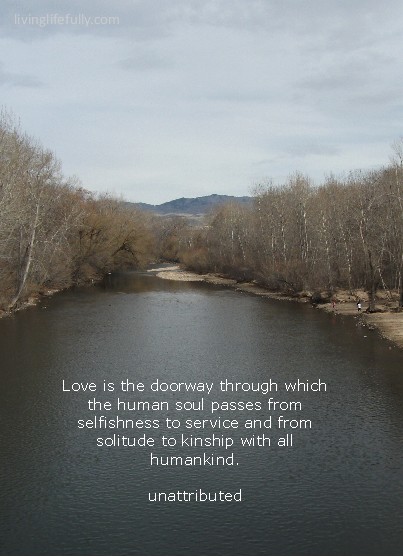|
Today's
quotation:
It
requires no thought, no consideration, no character, no talent
to be a
fault-finder. . . . It is much easier to find fault than to find
ways to help. How easy to be critical and how hard to be correct. How
easy to find
fault with others and how hard to mend our own ways.
Fred Van Amburgh
|
|
Today's
Meditation:
It's so
easy to find fault in others and the things they do and
the things they say. And sometimes, it's important
to do so because we learn a lot about who they are and
whether we can trust them, what we can expect of them,
whether or not they should be working for us or with
us. But sometimes our tendency to find fault becomes
a habit that can blind us to the positive sides of other
people, and that usually doesn't turn out well for anyone
involved.
As a
writing teacher, for example, one of my jobs is to find
faults with my students' writing so that they can correct
those faults and become better writers. In fact,
almost our entire educational system is designed around
testing people to find out what kinds of mistakes they
make, and then assigning grades based usually upon the
number of mistakes. But as a teacher, one of my most
important tasks is to find my students' strengths, too,
and to help them to develop those. By focusing on
strengths instead of faults, I help students much more
than otherwise.
Our
young people have grown up judging others and finding
faults more than any other generation due to
television. They've "voted" people off
stages and islands and out of houses after being
encouraged to find the faults in certain
contestants. They're asked to evaluate others all
the time, and the fault-finding patterns that they've
developed often keep them from seeing the good and the
beautiful in other human beings. This is not a
reality that they've asked for, but one that has been
pushed upon them, and one that can definitely damage their
chances for happiness and peace.
I
don't ever want to stop being able to figure out what's
wrong with something. If a pie that I bake turns out
awful, I need to be able to figure out what the problem
was. But I know that the problem is not that I'm a
terrible baker (I'm pretty decent), but something that I
did wrong in the process of making it. One bad pie
doesn't make me incompetent in the kitchen, and anyone who
says it does is using one small fault to make a broad--
and invalid-- statement. Let's look less for faults and
more for the strengths and the beauty that surround us in
the world.
|


